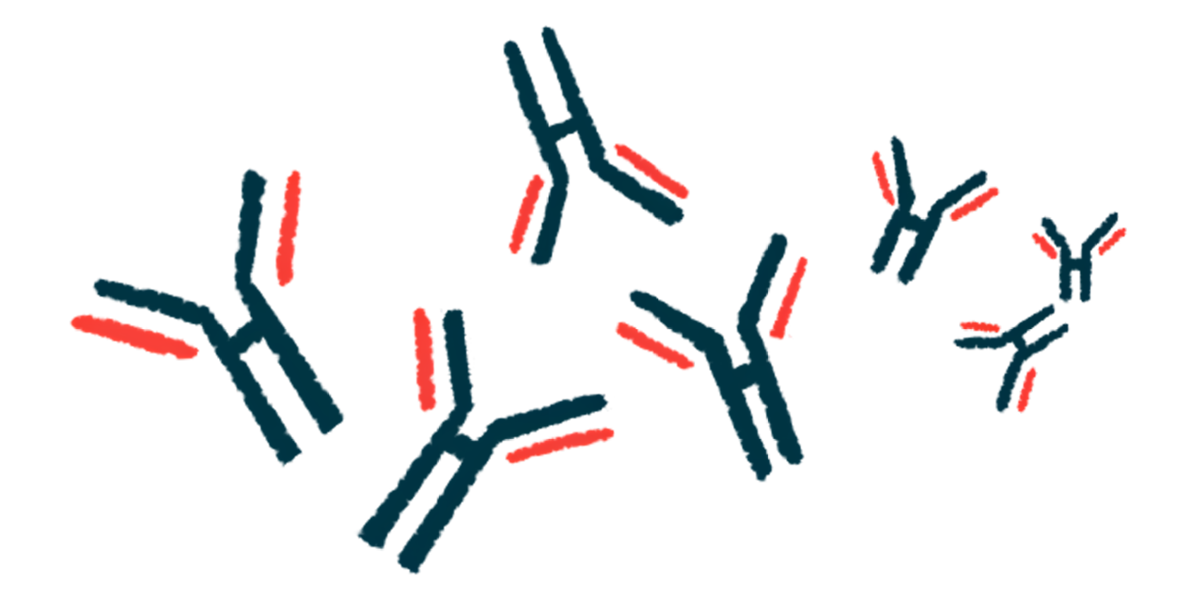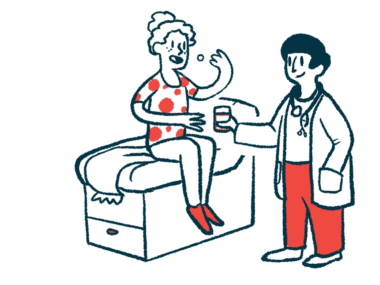HNSA-5487 shows antibody-lowering abilities in clinical trial
Investigational therapy reduced IgG antibodies in bloodstream in Phase 1 study
Written by |

HNSA-5487, an investigational therapy being developed for potential use in myasthenia gravis (MG) and other autoimmune diseases, was safe and rapidly lowered the levels of immunoglobulin G (IgG) antibodies in the bloodstream, according to data from a Phase 1 clinical trial.
IgGs are a class of antibodies found in the blood and other body fluids that help fight off harmful invaders. But the self-reactive antibodies that underlie several autoimmune diseases also belong to the IgG class.
Developer Hansa Biopharma plans to continue HNSA-5487’s clinical development by focusing on chronic autoimmune diseases where IgGs play a key role, including MG, neuromyelitis optica spectrum disorder, and myelin oligodendrocyte glycoprotein antibody disease.
“These results underscore the transformational potential of HNSA-5487 to address significant unmet need across a spectrum of IgG driven diseases and conditions, including autoimmune where there is a clear need for better management of initial and repeat immune system attacks,” Søren Tulstrup, president and CEO of Hansa, said in a company press release.
In MG, self-reactive IgG antibodies target proteins important for nerve-muscle communication, leading to muscle weakness and fatigue. A treatment strategy for MG and other IgG-related autoimmune diseases is to lower the levels of IgGs, thereby reducing the activity of autoantibodies that drive disease symptoms.
Next-generation treatment
Hansa previously developed imlifidase, a first-in-class treatment containing a bacteria-derived enzyme that binds to IgG antibodies and cleaves, or cuts, them into two pieces. This effectively inactivates IgGs and renders them unable to activate the immune system.
The medication is sold under the brand name Idefirix in the European Union, where it is given to certain adults prior to kidney transplant to prevent unwanted immune reactions, an indication for which it is also being developed in the U.S.
While IgG-cleaving enzymes could also have promise for treating MG and other autoimmune diseases, existing molecules such as imlifidase are limited in the number of times they can be repeatedly administered. That’s largely because of the risk that patients will develop antibodies against the treatment (immunogenicity) that compromise its efficacy or safety.
Chronic autoimmune conditions would require a treatment that can be dosed both at disease onset and in the long term to control repeated disease attacks. Hansa launched the NiceR program in an effort to develop next-generation, IgG-cleaving enzymes with greater repeat dosing potential and lower immunogenicity.
HNSA-5487 emerged as the lead candidate from that project. It’s expected to lead to the same rapid onset of IgG inactivation as imlifidase, but with the ability to prolong the period of time in which IgG levels are low.
Repeat dosing potential
The NICE-01 clinical trial was designed to test the safety, tolerability, and pharmacological properties of single ascending doses of HNSA-5487 (0.02 to 1 mg/kg), given via an infusion into the bloodstream, versus placebo among 36 healthy adults.
Trial results indicated HNSA-5487 had efficacy similar to imlifidase for lowering IgG levels, but resulted in fewer anti-drug antibodies and had an overall better repeat dosing potential, according to Hansa.
The treatment led to rapid and robust reductions in IgG, with levels dropping by more than 95% within a few hours. IgG levels slowly increased thereafter, reaching a normal range six months after initial dosing.
All patients treated with the two highest doses (0.5 or 1 mg/kg) were considered treatment responders, meaning that their IgG levels dropped to less than 5% of what they’d been before treatment within a day of the infusion. In a previous study, 88% of patients given imlifidase were considered treatment responders.
“There is mounting clinical evidence that faster and more robust IgG reduction is directly linked to more successful therapeutic outcomes in autoimmune and other diseases,” Tulstrup said. “We are very encouraged by these results that demonstrate HNSA-5487 can robustly and very rapidly reduce IgG levels.”
Relative to imlifidase, HNSA-5487 was associated with lower rates of pretreatment anti-drug antibodies and significantly reduced ADA response after treatment, demonstrating it has a better immunogenicity profile and a greater capacity for repeat dosing, according to the company. The treatment was found to be safe and well tolerated, with no serious adverse events reported.





Leave a comment
Fill in the required fields to post. Your email address will not be published.